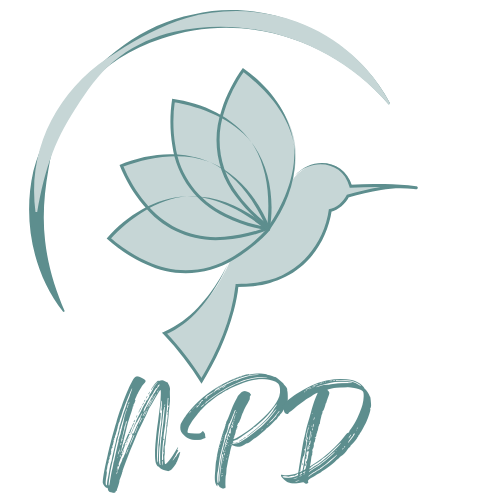Everything to know about Narcissistic Personality Disorder (NPD):
Loving yourself is good because it is a reflection of healthy self-esteem, the problem and as always happens with extremes, is the time you spend adoring yourself. This is what we will talk about in this post, narcissistic personality disorder which is a major pathological narcissism disease.
What is a narcissistic personality disorder?
People who feel special, who believe they are above the rest, and who demand to be treated preferentially. These are some of the symptoms of narcissistic personality disorder. We explain how it manifests itself, what lies behind it, and how it can be treated.
In our society, we use the term “narcissist” as a wasteful insult especially when we want to disqualify someone without commiseration. So, we describe a vain, egotistical, self-satisfied person lacking the slightest empathy and consideration for the needs of others, and we do so because we think it helps us explain many of the harsh difficulties we deal with in some of our lives.
So, we water our conversations with this adjective and we talk about my ex-boyfriend, a very narcissistic guy, or my boss, a narcissist through and through who doesn’t listen to anyone, talks nonstop about himself, about what he needs, about his infinite kindnesses, etc.
By using the term “narcissism” we refer to a type of person who is self-absorbed and chronically believes that they are better and superior to others. The other does not count or counts little.
It is possible that if we delve honestly within ourselves, we sometimes discover the presence of narcissistic attitudes in our way of proceeding and acting. But when we speak of “narcissistic personality disorders” we refer to a clinical mental health condition where excessive consideration of oneself, both of their faculties and their works, significantly affects and hinders life, both in the type of relationships that the person establishes as in everyday life.
Narcissistic personality disorder has been included since 1980 in the classification offered by the Diagnostic and Statistical Manual of Mental Disorders and is included in that group characterized by the predominance of unstable emotions and the existence of a distorted self-image. It is as if these people look at themselves through concave or convex mirrors. It appears already in the early stages of adult life and affects more men than women.

A narcissistic personality disorder is the most serious of narcissism and three types are known.
– Empowered narcissist.
– Manipulative narcissist.
– Narcissist without power.
Symptoms of Narcissistic Personality Disorder (NPD):
If we were to summarize a necessary condition, it would be an excessive consideration of its importance that is expressed in the following symptoms:
– They express a feeling of greatness and arrogance (they exaggerate their achievements and talents, they hope to be recognized as superiors without having the corresponding successes).
– They are absorbed in fantasies of limitless success, power, brilliance, beauty, or ideal love.
– They believe that they are “special” and unique and that they can only be understood or can only associate with special or high-status people (or institutions).
– They have an excessive need for admiration, which is exhausting for those around them.
– They exhibit a sense of privilege (for example, they hold unreasonable expectations of receiving especially favorable treatment simply for being them or of having their wishes and expectations met immediately by others).
– They exploit interpersonal relationships and take advantage of others for their ends.
– They lack empathy and do not seem to be willing to recognize or identify with the affections and needs of others.
– They often envy others or believe that others envy them.
– They exhibit arrogant and superior attitudes.
Suggested book: Alexander Lowen Narcissism
Causes of Narcissistic Personality Disorder (NPD):
Although psychology does not yet specify the cause, it suggests that, like other mental disorders, it is complex. A narcissistic personality disorder is associated with the individual’s environment, genetics, and neurobiology.
The first of these traits has to do with the parental relationship, for having spoiled or criticized excessively. In genetics, by inherited characteristics, and in neurobiology, by the connection between thought, behavior, and the brain.
Consequences of suffering from this disorder:
These people have a hard time taking criticism and are easily hurt. When a conflict arises, they do not recognize that they may have also done something wrong, they are real experts at blaming others and they also get very angry if others do not follow their orders or provisions.
The grim consequence is that they have serious difficulties in their relationships due to their inability to listen to the other, their chronic lack of empathy especially when expressing feelings of vulnerability and fragility, and a frivolous way of discarding friendships in the face of small or imaginary disagreements and so on. They are also at high risk for drug and alcohol use as well as social isolation.
However, hidden from this arrogant way of appearing to others, their inner world is inhabited by painful feelings of insecurity and low self-esteem that can be reversed with the right treatment, giving way to more positive and considerate attitudes and behaviors in their relationships.
What are the treatments for Narcissistic Personality Disorder (NPD)?
Psychotherapy is of great help because in it you talk with the patient. It will be directed by a psychotherapist, online or conventional psychologist.
The specialist will promote changes in the patient’s feelings, thoughts, and behaviors, in this case, with a narcissistic personality disorder.
Another successful method is cognitive behavioral therapy which addresses the beliefs and thoughts of the individual. The expert gives you the tools to improve your social skills and handle everyday situations.
Conclusion:
All of the possible causes of narcissistic personality disorder that have been discussed so far are not enough on their own to cause the disorder. This is possibly the result of multiple genetic and environmental factors, many of which are yet to be discovered.
It must be taken into account that the research carried out to date, especially that related to the influence of parents, has not had all the desirable scientific rigor, which is why it is advisable to make any statement with caution.


